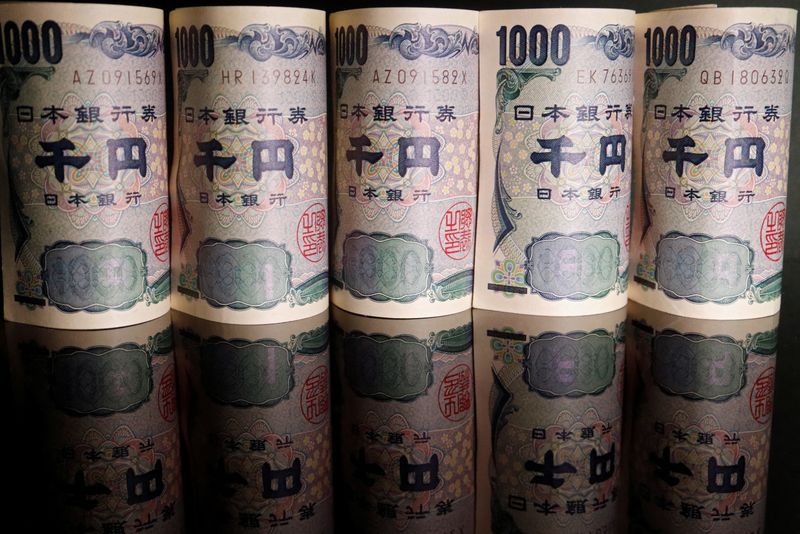By Leika Kihara
TOKYO (Reuters) - Japan will likely keep intervening to prop up the yen until the risk of speculators triggering a free fall in the currency has been eliminated, said a former central bank official who was involved in Tokyo's market forays a decade ago.
The yen jumped on Thursday on what traders suspect was the second day of intervention following such action on Monday to stem the currency's sharp declines.
Japan's Ministry of Finance has declined to confirm whether it had stepped in, leaving markets on edge over the chance of another bout of intervention.
Atsushi Takeuchi, who headed the Bank of Japan's foreign exchange division when Tokyo intervened back in 2010-2012, said Japan probably stepped into the market on Monday because of the sudden, big loss the yen suffered over a short spell that day.
"If you leave a sudden 2-3 yen move in a single day unattended, you risk triggering a yen free fall that heightens anxiety over the yen and the broader economy," Takeuchi said.
By intervening when the yen's decline accelerates over a short period, authorities can maximize the psychological impact by keeping traders on guard over the chance of more action, he said.
"Authorities will continue to intervene for as long as needed to ensure they accomplish their mission, which is to prevent speculative trading from causing a yen free fall," he told Reuters on Thursday.
Members of the Group of Seven of advanced economies, including the United States, are unlikely to complain even if Tokyo keeps intervening, as long as the moves are focused on addressing rapid, speculative yen moves, he said.
Takeuchi brushed aside concerns of some market players that there were limits to how much of its $1.29-trillion worth of foreign reserves Japan can use to intervene because some of its U.S. Treasuries holdings could be hard to sell.
"The whole point of Japan holding such huge foreign reserves is to prepare for cases like now, when it needs to intervene," Takeuchi said, stressing that the government did not invest in assets with low liquidity that are difficult to sell.
"It's true authorities need to be mindful of the market impact when selling assets to fund intervention. But the U.S. Treasury market is huge, so it shouldn't be a problem."
Japan has historically focused primarily on preventing sharp yen rises that hurt its export-reliant economy. Takeuchi took part in several yen-selling interventions from 2010 to 2012. He is now chief research fellow at Ricoh Institute of Sustainability and Business.
Under Japanese law, the government holds jurisdiction over currency policy, while the BOJ serves as an agent of the finance ministry, which decides when to intervene.
